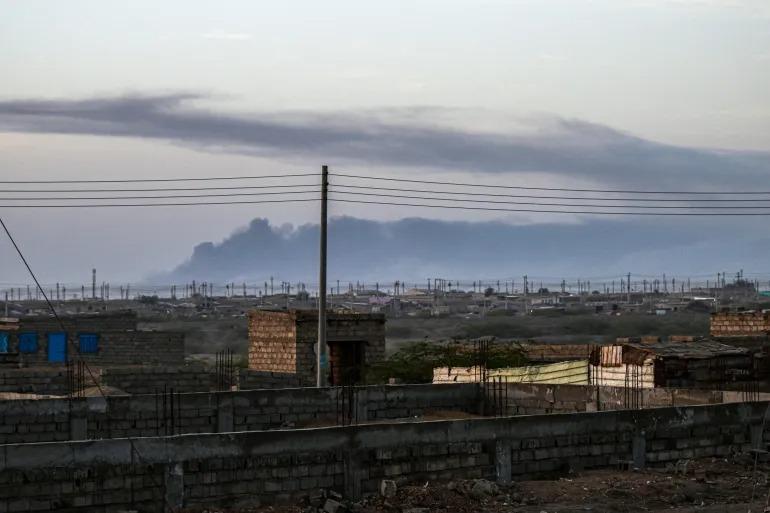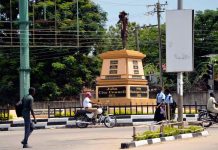Africa-Press – South-Sudan. The paramilitary Rapid Support Forces (RSF) carried out a drone strike on an oil depot in Port Sudan on Monday, marking the second aerial attack on the city in two days and underscoring a growing threat to areas under the control of the Sudanese Armed Forces (SAF).
The strike hit a fuel storage facility near the port, sparking a fire. While there were no immediate reports of casualties, the attack added to mounting concerns about the RSF’s expanding use of drones and its ability to strike deep into SAF-held territory.
The attack came less than 48 hours after RSF drones targeted Port Sudan International Airport, causing damage to a military base within the airport compound.
The strike on the airport drew widespread condemnation and marked a significant escalation, as Port Sudan serves as the primary logistical and administrative hub for the SAF and the seat of the military-led government since the fall of Khartoum.
The African Union described it as a “dangerous escalation” of the conflict, warning of a direct threat to civilian lives, humanitarian access, and regional stability. The AU reiterated its call for an immediate ceasefire and a return to political dialogue.
Egypt, a key supporter of the SAF, also condemned the targeting of infrastructure in Port Sudan and Kassala, emphasizing the need to protect Sudan’s resources and humanitarian aid efforts.
“The Arab Republic of Egypt condemns the targeting of infrastructure and vital facilities in the cities of Port Sudan and Kassala… Egypt calls for a ceasefire to protect the Sudanese people’s resources and prevent further damage to civilian infrastructure,” the Egyptian foreign ministry stated, highlighting the detrimental impact on aid delivery.
Other regional powers, including Iran, Saudi Arabia, and Kuwait, joined in condemning the airport attack, stressing the urgent need for dialogue to end the conflict and prevent further humanitarian suffering.
Once a relatively quiet coastal city, Port Sudan has become the backbone of SAF operations, hosting military command centers, relocated federal institutions, and key supply routes for troops fighting on multiple fronts.
The back-to-back RSF attacks appear aimed at undermining the military’s ability to operate from what has become its main stronghold.
The airport strike also has broader implications for civilian mobility. Since the destruction of Khartoum International Airport in the early days of the war, Port Sudan’s airport has become the country’s main gateway for civilian travel.
Damage to its facilities raises the risk of flight suspensions and threatens to isolate civilians seeking to leave the country or travel for urgent needs.
By striking both a strategic oil depot and the city’s only functional airport, the RSF has signaled its intent to disrupt not only military logistics but also the civilian infrastructure concentrated in Port Sudan.
The city’s stability has been central to the SAF’s claim of legitimacy and control. Hitting it twice in two days sends a clear message about the RSF’s growing reach and its ability to challenge the government far beyond the frontlines of Khartoum and Darfur.
These developments come amid a prolonged conflict between the RSF and SAF that has devastated Sudan since April 2023. With Khartoum largely under RSF control and the SAF struggling to maintain dominance in key regions, Port Sudan has remained a critical fallback point for the military. Its targeting suggests a shift in RSF strategy toward striking at the heart of the SAF’s remaining power structure.
As drone warfare becomes an increasingly central feature of the conflict, the attacks on Port Sudan may mark the beginning of a new phase – one in which even Sudan’s most fortified government centers are no longer immune to direct assault.
For More News And Analysis About South-Sudan Follow Africa-Press






